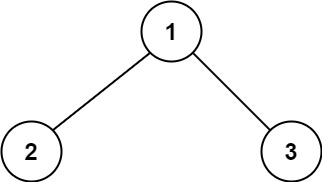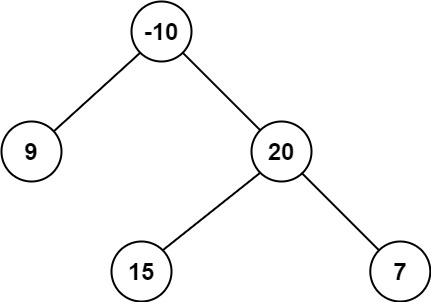LeetCode-in-All
124. Binary Tree Maximum Path Sum
Hard
A path in a binary tree is a sequence of nodes where each pair of adjacent nodes in the sequence has an edge connecting them. A node can only appear in the sequence at most once. Note that the path does not need to pass through the root.
The path sum of a path is the sum of the node’s values in the path.
Given the root of a binary tree, return the maximum path sum of any non-empty path.
Example 1:

Input: root = [1,2,3]
Output: 6
Explanation: The optimal path is 2 -> 1 -> 3 with a path sum of 2 + 1 + 3 = 6.
Example 2:

Input: root = [-10,9,20,null,null,15,7]
Output: 42
Explanation: The optimal path is 15 -> 20 -> 7 with a path sum of 15 + 20 + 7 = 42.
Constraints:
- The number of nodes in the tree is in the range
[1, 3 * 104]. -1000 <= Node.val <= 1000
Solution
type TreeNode struct {
Val int
Left *TreeNode
Right *TreeNode
}
/**
* Definition for a binary tree node.
* type TreeNode struct {
* Val int
* Left *TreeNode
* Right *TreeNode
* }
*/
func deepest(root *TreeNode, ans *int) int {
if root == nil {
return 0
}
l := deepest(root.Left, ans)
r := deepest(root.Right, ans)
if l+root.Val > *ans {
*ans = l + root.Val
}
if r+root.Val > *ans {
*ans = r + root.Val
}
if l+r+root.Val > *ans {
*ans = l + r + root.Val
}
if root.Val > *ans {
*ans = root.Val
}
if l > r && l > 0 {
return root.Val + l
}
if r > 0 {
return root.Val + r
}
return root.Val
}
func maxPathSum(root *TreeNode) int {
ans := -100000000
deepest(root, &ans)
return ans
}

